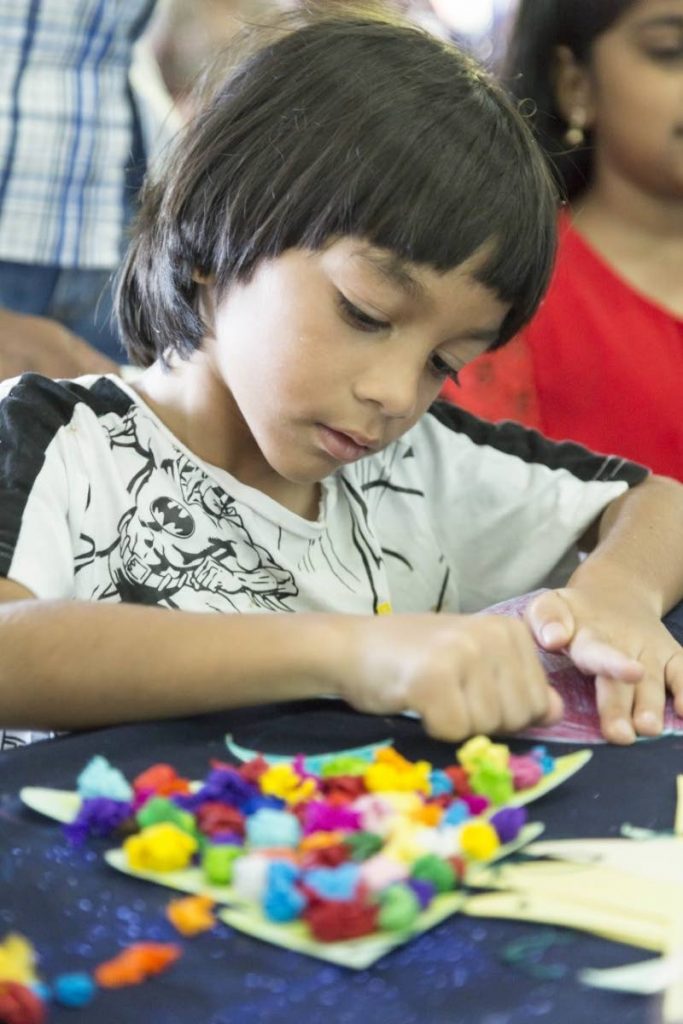I think my child has autism, what to do?

DR RADICA MAHASE
“I think my child has autism but I don’t know what to do. Where can I get help? Can you all help me?”
For the past few years Support Autism T&T has been getting frequent calls asking variations of these questions.
No matter who is the caller, these calls have one thing in common – the desperation with which they are seeking information, advice and help. Many parents can spot the signs of developmental delays in their children, however, in TT, beyond information, most parents are simply lost as there isn’t any guide for them to follow if they observe developmental delays in their children. What can they do?
Continue to monitor your child’s development. Keep a child growth diary – write down all the things that your child does (or don’t do in this case). Keep a record of milestones that your child has met. Pay special attention to speech, behaviour and socialisation. Write down the things that you have observed where your child’s growth is concerned.
This will not only help you to keep track of your child’s development but will provide useful information that will help in diagnosing your child.
Seek professional help. Get your child diagnosed by a doctor specialising in child development. You can take your child to a developmental paediatrician at a public health care institution – outreach clinics at Pt Fortin, Siparia, Couva and Princes Town and at the San Fernando General and Mt Hope hospitals.
To make an appointment at the paediatric clinic in the institutions listed above, you have to get a referral letter from a regular GP. The waiting period varies according to the institution and ranges from five to 18 months.

If you prefer to, or can afford to, you can make an appointment to visit any of the three doctors who work in these institutions at their private practices at different venues. The cost of a private visit ranges from $1,000 to $5,500.
Get a second and third opinion if you are not comfortable with the doctor’s diagnosis. Many times, parents notice the signs of developmental delays in their children but when they visit the health centres and paediatric clinics, they are told nothing is wrong with the child, not just by the nurses but also by doctors.
Recently a parent said that she took her three-year-old to the paediatrician, who said nothing was wrong with the child, despite the fact that the child was not speaking, walked on his toes and did not play with other children. She was told the child would develop when he’s ready. She felt uncomfortable with this diagnosis and eventually took her child to another paediatrician.
Work with your child while you wait for a diagnosis. As stated above, it could take anywhere between five and 18 months to get a child diagnosed in the public healthcare system. While parents/caregivers are waiting for the appointment, they should continue to work with their children in whatever way they can.
There are many resources available online, for example phonics videos on YouTube to help speech development (Leap Frog, etc) or if you have a device, there are various apps you can use on an iPad or tablet.
Parents/caregivers will know the areas in which their children need help and until they can find or afford a professional to work with their children, they can access free resources online.
Don’t "wait and see." Too often children are not diagnosed early because parents/caregivers were told to "wait and see" how the child develops.
One parent said she was told her son would talk when he was ready, another mother said she waited two years before she took her daughter to the paediatrician because she "just knew that she will talk one day."
Parents/caregivers usually recognise red flags and it is important that they trust their instincts and seek help for their children. Sometimes relatives/friends might make them question themselves, say that they are overreacting, nothing is wrong and so on, but ultimately parents have to trust their instincts and seek help for their children.
There are many challenges to raising a child on the autism spectrum and these are made worst by the lack of access to resources within the public healthcare system in TT.
With this in mind, reach out to your local groups, join parents’ networks and do your research about autism, because ultimately, as a parent, you will mostly have to figure it out on your own.
Radica Mahase is the founder/director of Support Autism T&T

Comments
"I think my child has autism, what to do?"